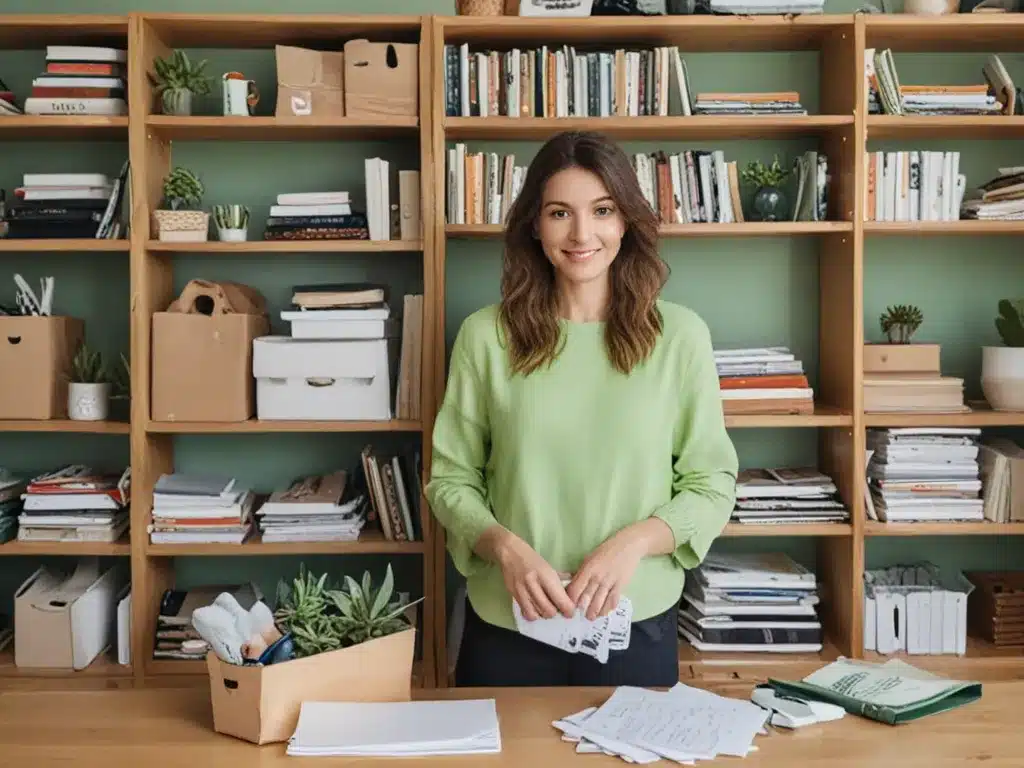Why Decluttering is Important
Decluttering our homes is an important first step towards living more sustainably. By getting rid of excess stuff, we reduce our environmental footprint in many ways:
-
Less consumption – Decluttering helps curb overconsumption by making us more mindful of what we actually need and use. I consciously avoid buying new things when I don’t need them.
-
Less waste – Having less stuff means having less to eventually throw away. I aim to keep only things I truly use or bring joy.
-
Smaller home – A decluttered home needs less square footage to live comfortably. I choose compact and multifunctional furniture.
-
Lower energy use – Heating, cooling, and lighting a smaller home requires less energy. I maintain an efficiently-sized living space.
-
Cleaner indoor air – Having less stuff means having less dust and fewer chemicals that degrade indoor air quality. I limit belongings that off-gas VOCs.
How to Declutter Sustainably
When decluttering our homes, it’s important to dispose of unwanted items responsibly to avoid creating more waste. Here are some green decluttering tips:
Reduce and Reuse First
-
Cut back on acquiring new stuff, especially single-use items and plastic packaging. I borrow, rent, or buy used as much as possible.
-
Repair and mend belongings to extend their usefulness before replacing them. I have sewing skills to fix torn clothes.
-
Donate or sell quality used items so others can continue using them. I use Buy Nothing groups and consignment shops.
-
Compost food scraps and yard waste rather than sending them to the landfill. I have a compost bin outdoors.
Recycle as a Last Resort
-
Check local recycling guidelines to learn what can and cannot be recycled curbside. I keep a list on my fridge.
-
Avoid “wishcycling” – putting questionable items in the recycling that may contaminate the stream. I only recycle what I know is accepted.
-
Take hard-to-recycle items like batteries, electronics, and textiles to proper drop-off locations. I collect these items and drop them off monthly.
Tips for Maintaining a Decluttered, Eco-Friendly Home
Once I’ve gone through the process of green decluttering and organizing, there are some habits I practice to keep my home tidy, minimalist, and eco-friendly:
Adopt a “One In, One Out” Policy
- I add one new item to my home only if I remove one item to donate, recycle, or compost. This stops clutter from accumulating.
Conduct Mini Decluttering Sessions
- I quickly sort through a drawer, closet, or shelf during commercial breaks or while waiting on something. Frequent mini decluttering prevents buildup.
Store Items Close to Where They’re Used
- Keeping items accessible and visible means they get used more often. Out of sight leads to excess.
Choose Multipurpose Furniture and Tools
- Multifunctional items save space and allow for flexible rooms. My coffee table has storage space inside.
Display Sentimental Items Mindfully
- I limit sentimental items to just my most cherished ones. I take photos of some to declutter physical objects.
Buy Consumables Only as Needed
- I buy perishable goods like food, cleaning supplies, and toiletries only when I’m about to run out. This prevents overstocking.
The Benefits of a Minimalist, Eco-Friendly Home
Embracing a decluttered, sustainability-focused lifestyle provides many benefits beyond reducing environmental impact:
-
Saves money from less heating/cooling, reduced consumption, and avoiding wasted food
-
Saves time on cleaning and organizing since there are fewer items
-
Reduces stress from visual and mental clutter
-
Creates cozy living spaces with room to move around
-
Encourages mindfulness about what we really need
-
Allows focus on activities and people rather than stuff
-
Fosters gratitude for belongings from appreciating quality over quantity
Decluttering and living sustainably requires both a mental shift as well as practical green organizing habits. But this path ultimately creates a warm, welcoming, and eco-friendly home environment.







